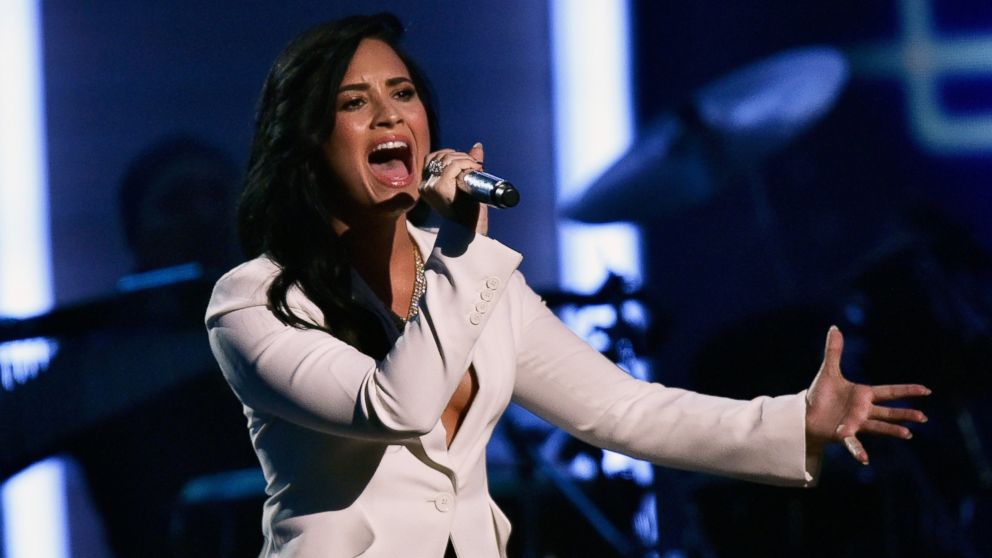Demi Lovato Talks Mental Health, Addiction and Recovery
“I lived fast and I was going to die young,” she told American Way magazine.

— -- At one time, pop star Demi Lovato doubted whether she would make it to age 21. Now, the former Disney star, 23, is not only topping the charts, but speaking out on the mental health, addiction and body image issues.
In an interview with American Way magazine, Lovato opened up about the struggles she has faced and how they continue to shape her career to this day.
“I lived fast and I was going to die young,” she explained in the interview, pointing to her troubled childhood as a source of her past problems.
Lovato grew up in Texas with two parents battling their own demons, she said. Her father, Patrick Lovato, struggled with schizophrenia, bipolar disorder and alcoholism while her mother, Dianna Lee Hart, battled bulimia.
At the age of 7, Lovato began her career in pageantry. Though her issues with body image began before that, she still “attributes a little of [her] insecurities to being onstage and judged for [her] beauty.”
Only a couple of years later, at age 9, Lovato began to binge eat and purge.
In the years following, Lovato would continue performing, eventually landing a role alongside the Jonas Brothers in the hit Disney movie "Camp Rock." Her stardom would skyrocket from there, bringing with it behavioral problems for the young star.
It was at this time that Lovato began to lose control, indulging in drugs, such as cocaine and OxyContin, and alcohol. She dismissed any attempts her mother and stepfather made at disciplining her.
It wasn’t until she punched a backup dancer in the face that Lovato came to terms with her situation and decided to seek help. She abruptly left her tour with the Jonas Brothers and admitted herself into rehab, where she addressed her bulimia and bipolar disorder. Lovato recalled feeling as though she was “just another stereotype” upon entering rehab.
Once her mental illness was addressed and under control, Lovato tackled her drug and alcohol problem. She checked herself into a sober living facility, a decision that was largely kept under wraps until 2013. She said she hasn’t had a drink since 2012.
In the years since, Lovato has become an advocate for mental illness, inspiring fans with her song lyrics and her openness.
“As a pop star, I can say, ‘Hey, I’ve got bipolar disorder — it’s nothing that anyone can be ashamed of,’” she said in the interview.
Though she never expected to be an inspiration, Lovato has become a role model for many young women facing the same difficulties she once did. Lovato told American Way about the countless girls she has met at meet-and-greets who thanked her for aiding in their recovery from depression and addiction. She added, “Hearing those things gave my life new meaning.”




